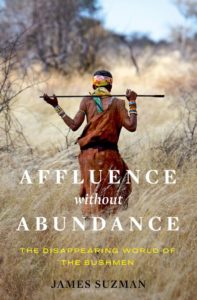Affluence Without Abundance thoughts
In this country, mentioning any deviation from capitalism flips people into communism and socialism.
This black-and-white thinking explains why Reagan and Thatcher opposed Nelson Mandela fighting Apartheid—supporting a party promoting blatant, destructive racism. They supported the party started by supporters of Nazis—a term we throw around today to mean figuratively, but the creators of Apartheid supported Hitler in the 30s and 40s.
Maybe because Thatcher was prime minister of empire that established 13 colonies that enshrined slavery into its constitution and Reagan was president for country that maintained it for nearly a century.
1776 may seem long ago, but is short in some contexts. 1776 is also when Adam Smith published The Wealth of Nations. Since then capitalism has spread and come to dominate most of the world. Under certain conditions it works, possibly best. Some challenges, such as the tragedy of the commons, overproduction, and the principle agent problem, it has never solved.
As conditions and problems change, so must solutions. Otherwise solutions to non-existent problems risk creating more problem. Maybe capitalism can be adjusted through accounting for externalities and shifting taxes to greenhouse emission and pollution from income.
242 years may seem long. Many cultures have lasted longer with other economic systems and governance. If we want our culture and economic system to endure, we would do well to learn from what works.
As Nobel laureate Richard Feynman said “If theory doesn’t fit observation, no matter how beautiful, it’s wrong.” We usually get that principle in physics. Economics, politics, and business don’t have such rigor and stick with theories blinding them to contrary evidence.
In Affluence Without Abundance, about bushmen in southern Africa, I expected to read about another culture. I didn’t expect to learn about mine. I like the internet, solar power, anesthetics, and so on and have no interest in living as a hunter and gatherer.

Affluence Without Abundance, by James Suzman
But I’d be a fool not to learn what I could from their success.
What success?
Their culture has lasted 200,000 years. Two Hundred Thousand Years. Let that sink in. The United States and capitalism have been around about 1/1000th of that time.
Our economic theories can’t explain or understand their behavior or endurance—not capitalism, not communism. None of our theories. Our general response is to call them “developing.” For a baby to call an adult developing is ironic to the point of ignorant.
The book was an opportunity to learn. Historically, instead we’ve imposed our system on them, which has undermined their culture, creating inequality, alcoholism, and so on.
We haven’t learned what allowed them to endure so long, though our culture is conquering them. Ours may undermine itself though, unable to stop from drowning itself in its garbage, pollution, and waste, expanding to pave or mine any place it can, no matter how much beauty we destroy or how many species we cause to go extinct.
Anyway, I recommend the book and thinking of what we can learn from such an enduring group.
Read my weekly newsletter

On initiative, leadership, the environment, and burpees